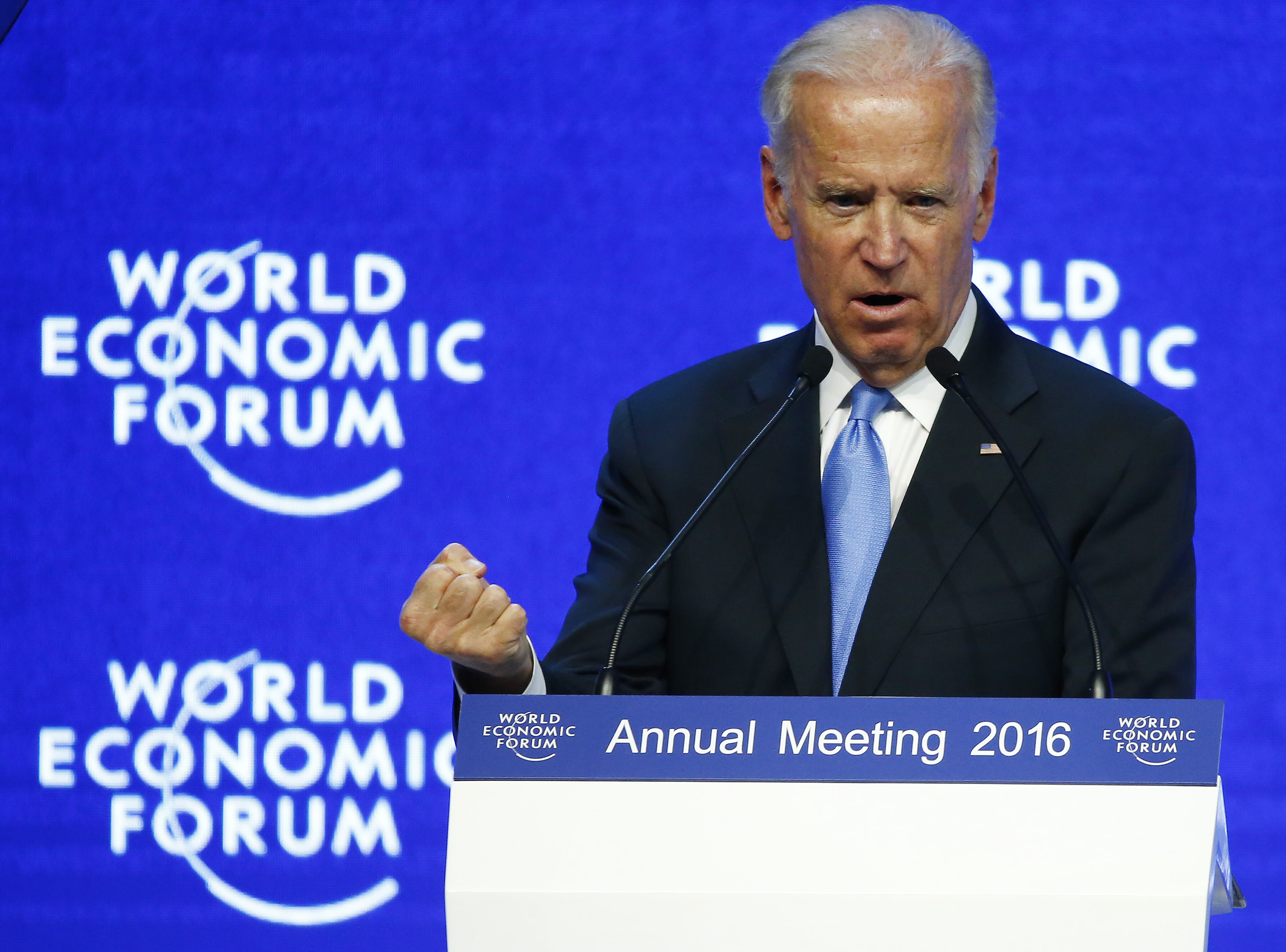Everyone thinks Davos is a sham. It isn't.
Here's why the annual bigwig meeting in Switzerland is so important


A free daily email with the biggest news stories of the day – and the best features from TheWeek.com
You are now subscribed
Your newsletter sign-up was successful
It's Davos time! Which means it's Davos article time! And every year, we get one particular kind of article — the one that says that Davos is all a waste, that it's just rich people fondling each other in a circle, that it doesn't accomplish anything, and that we should get rid of it. As an editorial at Investor's Business Daily put it last year, "it's turned into a preachy, weeklong exercise in excess, during which the same people who flew 1,700 private jets to attend... lecture the rest of us about the importance of cutting back on our carbon footprints and other things." Reading that piece — and, I'm sure, writing that piece — gives one that rush of populist self-righteousness. But I think it's wrong.
Yes, Davos is extremely pretentious. Yes, Davos is surrounded by a lot of unearned hype.Yes, Davos doesn't come close to living up to its own inflated claims about itself.
But that being said, Davos is still pretty important.
The Week
Escape your echo chamber. Get the facts behind the news, plus analysis from multiple perspectives.

Sign up for The Week's Free Newsletters
From our morning news briefing to a weekly Good News Newsletter, get the best of The Week delivered directly to your inbox.
From our morning news briefing to a weekly Good News Newsletter, get the best of The Week delivered directly to your inbox.
Let's be clear about one thing: The World Economic Forum Annual Meeting at Davos is, first, a business conference. It started out as a meeting of CEOs, and that's still its bread and butter. Let's say you're the CEO of a gigantic global company. How would you like to have five days full of back-to-back meetings with the CEOs of your 10 biggest customers, your biggest suppliers, your biggest partners? If you're the CEO of any company, you would probably pay a lot of money for that opportunity. And if just one of your biggest customers increases his order by 1 percent as a result of that meeting, what it costs to go to Davos more than pays for itself.
The rock stars, politicians, royalty, and other celebrities sitting on panels and opining about big ideas are the window dressing of Davos. Although that window dressing — getting brand value out of sponsoring events, and hobnobbing with famous people, and associating your brand with some important topic by appearing on a panel — has value, the real important of the conference is in the private meetings people can arrange. CEOs who spend a lot of money to go with their entourage to Davos aren't just indulging themselves to a five-day party. There is an actual, real business rationale to going to the the meeting in Switzerland.
What about all the politicians? Well, here too, there is a lot of value to having all of those other people available. It's the same idea as the G8 and G20 summits. Do most of them produce anything worthwhile, or of substance? No. But having a regular forum where the biggest world leaders regularly meet other such leaders can help businessmen and statesmen navigate the world's constant economic and political changes, and that's pretty important to stay ahead of problems.
Davos is often a forum of diplomacy. There are many situations where it's politically impossible to have an official meeting between competing world leaders. But if they both happen to be at Davos they can hardly avoid meeting each other and having discussions with the same people about the same things.
A free daily email with the biggest news stories of the day – and the best features from TheWeek.com
The most famous example of this is the meeting between Nelson Mandela and F.W. de Klerk, the then-president of apartheid South Africa, in 1992, which paved the way for the end of apartheid and free elections. In 1994 Davos was the place where Israeli Foreign Minister Shimon Peres and PLO Chairman Yasser Arafat reached their draft agreement on Gaza and Jericho. And each year there are other less historic, but nonetheless important incidents of behind-the-scenes diplomacy that goes on at Davos.
At the end of the day, Davos is valuable because it's Davos. Warts and all, there is no other place like it — no other place where all of the world's political and business leaders gather. Yes, it's vain. Yes, it's annoying. Yes, it's maddeningly plutocratic. But it also helps grease the wheels of global business and global diplomacy. That's not too bad.
Pascal-Emmanuel Gobry is a writer and fellow at the Ethics and Public Policy Center. His writing has appeared at Forbes, The Atlantic, First Things, Commentary Magazine, The Daily Beast, The Federalist, Quartz, and other places. He lives in Paris with his beloved wife and daughter.
